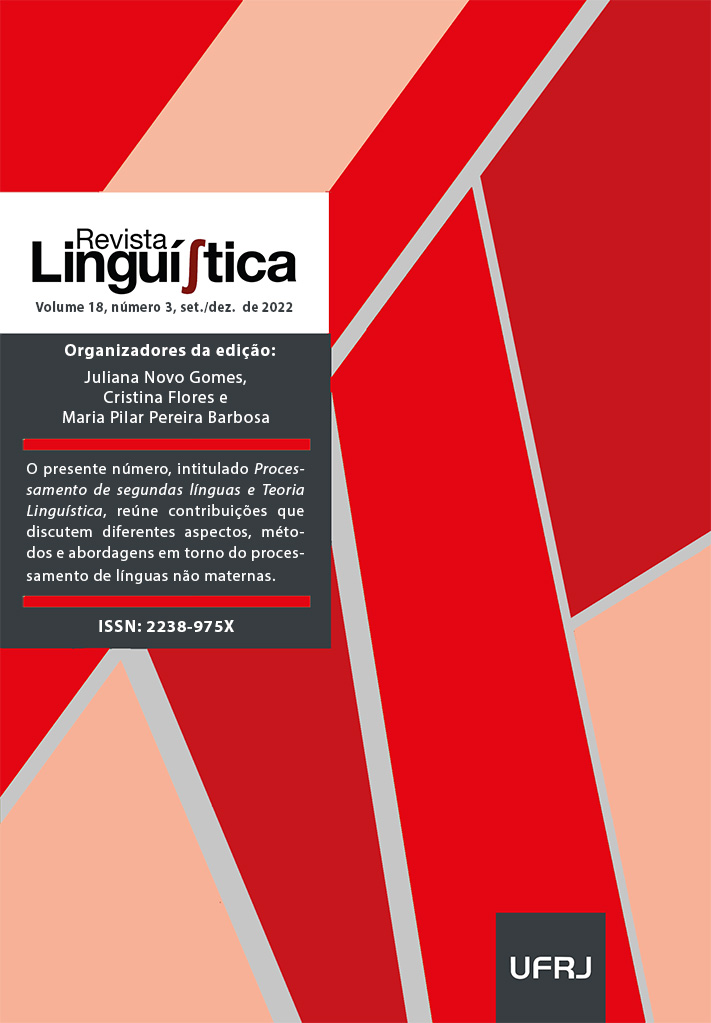Sentences processing with the verb gustar by brazilian learners
DOI:
https://doi.org/10.31513/linguistica.2022.v18n3a57458Keywords:
input processing, gustar, interlinguistic interferenceAbstract
The argument structure of the verb gustar (in Spanish) differs from the verb gostar (in Portuguese) in the preferential syntactic ordering, the attribution of thematic roles, and the frequency of use. These distinctions lead to difficulties in the acquisition of the verb gustar by Lusophone learners, both due to L1 interference and to the learners’ natural processing tendency to automatically interpret the first (pro)noun as the subject of the sentence, according to the input processing model (IPM) (VANPATTEN, 1996, 2002, 2005, 2015). In this paper, we discuss the results of two experiments that aimed to analyze the processing of the verb gustar in Spanish as L2 by Brazilian learners, observing interlinguistic interference effects, as well as, checking whether syntactic ordering affects the processing of the verb gustar. The two experiments comprised acceptability judgment tasks (AJT) and subject identification tasks (SIT), which were performed online, using PCIbex Farm. In addition, all participants completed, through Google Forms, the linguistic background questionnaire for bilinguals, with data needed to draw their profile. Overall, the results showed that the participants' performance does not seem to have been influenced by the structural similarity between Portuguese and Spanish, and that the processing costs of the verb gustar can be explained both by the effects of frequency of use of the structure in L2 and by the first name principle, as proposed in the IPM. The results also showed that the two tasks (AJT and SIT) involved sentence comprehension, but with demands of different complexity.Downloads
Published
Issue
Section
License
Authors who publish in the Revista Linguí∫tica agree with the following terms:
The authors maintain their rights, ceding to the journal the right to first publication of the article, simultaneously submitted to a Creative Commons license permitting the sharing with third-parties of published content as long as it mentions the author and its first publication in the Revista Linguí∫tica.
Authors may enter into additional agreements for the non-exclusive distribution of their published work (for example, posting in online institutional or non-profit repositories, or book chapters) so long as they acknowledge its initial publication in the Revista Linguí∫tica.

The journal Revista Linguí∫tica is published by the Post-Graduate program in Linguistics of UFRJ and employs a Creative Commons - Attribution-NonCommercial 4.0 International (CC-BY-NC).









